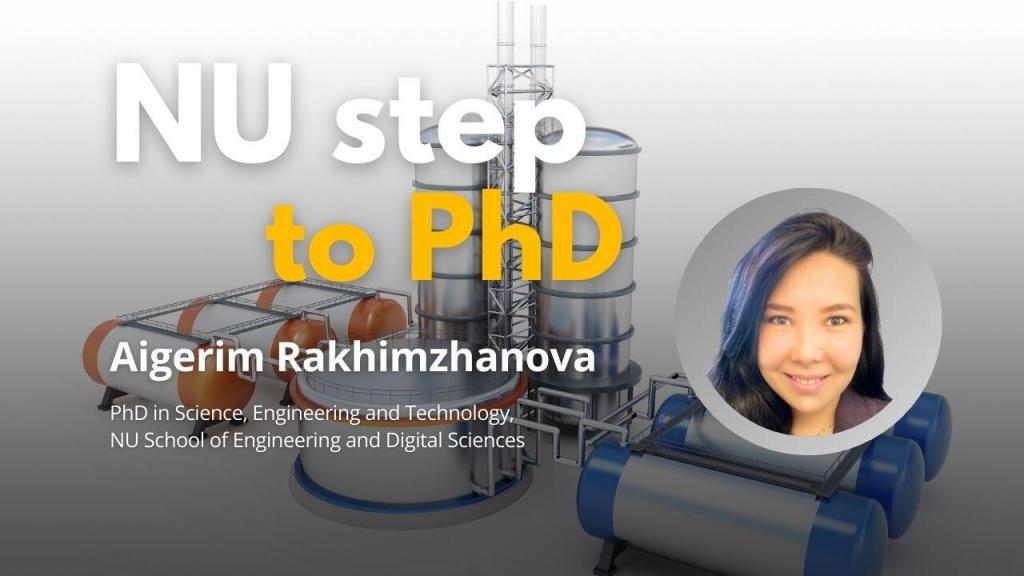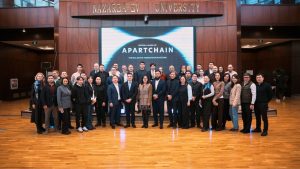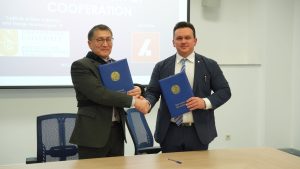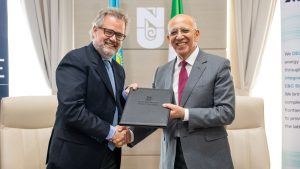We continue our series of interviews with NU PhD students, this time we will talk to our international researchers. Today’s interviewee is Kayode Olaifa, NU School of Engineering and Digital Sciences PhD candidate.
1) As a PhD student, have you already chosen your research topic, and if you have, what is it called?
Well…What I have now, is a working and tentative research topic, which embodies my research focus. I called it ‘tentative’’ because it is still subject to modifications depending on the certainties/uncertainties with respect to the results obtained, as the research progresses. It is called ‘Bioelectrochemistry of microbial biofilms as a tool for clinical applications.’
2) Can the results of your research be applied in real life?
Of course, our main motive is to be able to apply it in real life. Microbial biofilms are known to be responsible for about 80% of clinical infections and are also very difficult to manage because of their high resistance to antimicrobial treatments. Hence, possible solutions include early diagnosis and making the right choice of antimicrobial therapy. Our work, therefore, is aimed at using the direct/mediated electroactivity phenomenon in microbial biofilms as an index of early detection using the rapid and sensitive electrochemical-based technologies.
3) Are you involved in any other research projects at NU?
As a PhD student, I am working as a research assistant and participating in several other research projects going on in my lab. One of them is the development of a cheap and eco-friendly descaling agent. The rationale behind this project was that fouling is considered a common problem in Kazakhstan primarily due to hardness and other physico-chemical properties of its water. Most steel-based facilities in homes and industries easily become fouled, and the current available treatment methods are either too harsh, expensive, or less effective. So far, through the work of Aisholpan Kaziullayeva which I am part of, we have been able to validate using electrochemical and microscopy techniques that the use of a common fermentation by-product is effective for descaling purposes.
4) Could you please give some advice to the people who’d like to apply for a PhD program?
From my experience, I have the following to say to the people who would like to apply for a PhD program.
– First, familiarize yourself with the academic requirements of the school and that of your intended department, and prepare your application documents accordingly. This often includes the Bachelor and Master diplomas with a specific and minimum GPA requirement, English proficiency (e.g., TOEFL) certificate among many others.
– PhD application in NU, just like many other universities in the world, requires that the applicant has at least identified a temporary/potential advisor who is willing to accept and supervise the student. The best way to achieve this is to visit the school’s website and carefully study the research profiles of the available professors. Then contact at least two or three of them whom you are interested in their research. In your email, be brief and respectful, and include details such as your academic background and research experience. If this is appropriately done, you will get a response from at least one of the professors. From here, you can both discuss the research proposal, which is another integral component of the application process.
– Based on your discussion with your potential advisor, critically review the literature, and write a proposal on a specific problem. Be concise and methodical. Send it to the advisor for corrections and ensure you implement all suggestions before you proceed with the application.
– Another important aspect of PhD application is the recommendation letters. During the application process, the applicant is expected to submit contact details of his/her referees, at least two of them. So, prior to the start of the application, I will strongly advise that the applicant should inform the referees early and provide details about the school and department. Your former advisors in bachelor’s and master’s schools are the best fit for this purpose.
– Lastly, keep the communication channel open with your new potential advisor, even after you have successfully submitted your application.









